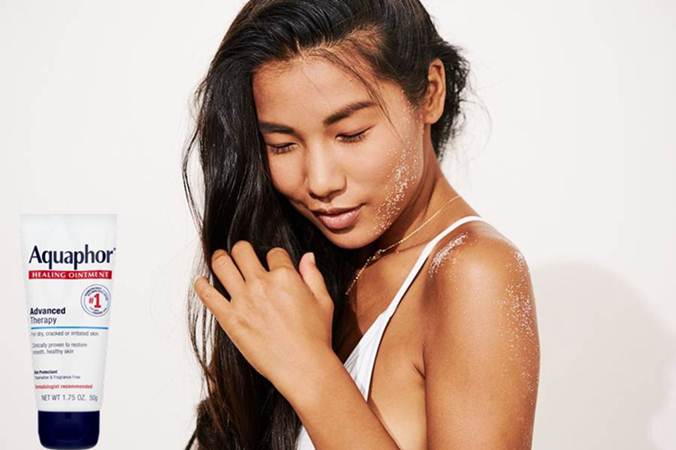Sunburn is a common skin condition that arises when your skin is exposed to overabundance of ultraviolet (UV) radiation, whether from natural sunlight or artificial sources like tanning beds. It can range from mild redness and discomfort to intense pain and the development of blisters.
While the most effective approach to evade sunburn is prevention, it’s not always possible to escape the sun’s rays. In such cases, it’s essential to know how to provide proper care for your sunburned skin.
Aquaphor, a popular ointment, is frequently suggested as a treatment for sunburn. We will explore Aquaphor’s potential for relieving and facilitating the healing of sunburn, while also offering guidance on its optimal use.
Understanding Sunburn
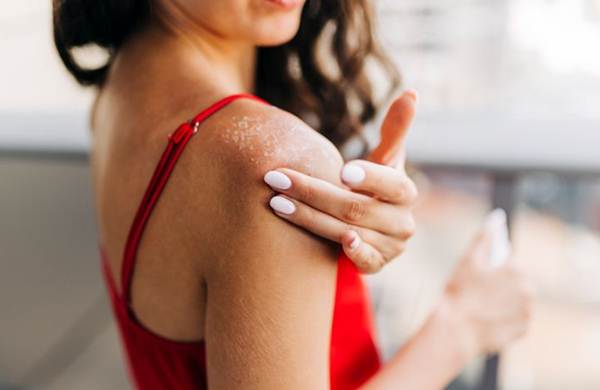
Sunburn occurs as a result of overexposure to intense UV radiation, primarily from the sun. UV radiation damages the DNA in your skin cells, which subsequently triggers inflammation and results in redness. It can cause various symptoms, including:
- Pain and discomfort: Sunburned skin can be painful, and it may exhibit sensations of tightness or itchiness.
- Redness: The affected area typically turns a reddish hue, often accompanied by a warm sensation.
- Blisters: Severe sunburn can result in the development of blisters.
- Swelling: Sunburn can result in swelling in the affected area.
- Long-term damage: Repeated sunburns can lead to premature aging and elevate the risk of developing skin cancer.
- Peeling: After a few days, sunburned skin may begin to peel as part of the healing process.
Does Aquaphor Help with Sunburn?
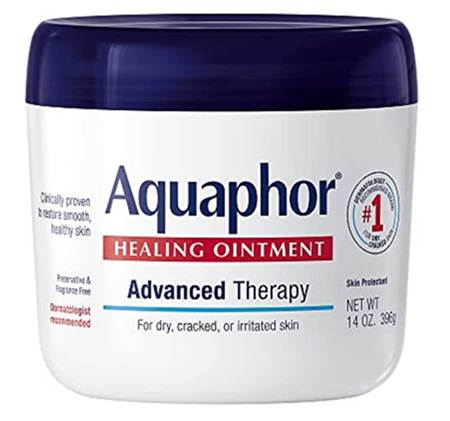
Aquaphor is a widely recognized over-the-counter ointment primarily used to moisturize and protect the skin. It contains various ingredients, including petrolatum, ceresin, mineral oil, panthenol, lanolin alcohol, and glycerin.
The components in Aquaphor form a protective barrier on the skin’s surface, preventing moisture loss and aiding in the skin’s natural healing process.
However, Aquaphor is not specifically designed for the treatment of sunburn. It is more commonly recommended for addressing dry, chapped, or irritated skin conditions.
While Aquaphor may not provide a direct cure for sunburn, it can offer some relief and support the healing process. Here’s how it can help:
- Protection: Aquaphor forms a protective barrier on the skin’s surface, shielding it from external irritants and bacteria. This barrier can help prevent infection, particularly in cases where blisters have formed on sunburned skin.
- Moisturization: Sunburned skin often becomes dry and dehydrated. The emollient properties of Aquaphor can assist in sealing in moisture and preventing further drying, reducing the tight, uncomfortable feeling associated with sunburn.
- Promoting Healing: By maintaining a moist environment on the skin, Aquaphor can assist in facilitating the natural healing process. Moist wounds tend to heal more rapidly and with less scarring.
- Soothing Effect: The ingredients in the ointment can have a soothing effect on the skin, reducing redness and discomfort. Panthenol, one of its ingredients, is renowned for its skin-calming properties.
How to Use Aquaphor for Sunburn Relief?
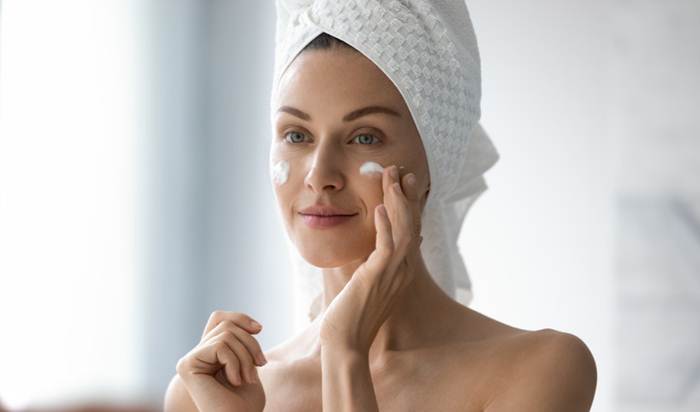
If you opt for Aquaphor to alleviate sunburn, to maximize its effectiveness, proper application of Aquaphor for sunburn relief is crucial. Here’s a step-by-step guide on how to use Aquaphor for sunburn:
- Cleanse the affected area: Before applying Aquaphor, carefully cleanse the sunburned area with mild soap and cool water. Avoid using hot water, as it can exacerbate skin irritation.
- Pat the skin dry: Gently pat the skin with a clean, soft towel. Refrain from rubbing, as it can aggravate the sunburned area.
- Apply Aquaphor: Utilize a pristine, sterile cotton ball or your freshly cleaned fingertips to apply a thin layer of Aquaphor to the sunburned area. Make sure to cover the entire affected area, being cautious not to exert excessive pressure.
- Reapply as needed: Depending on the extent of your sunburn’s severity, you may need to reapply Aquaphor several times a day. Be mindful of your skin’s sensations and adjust your application frequency accordingly.
- Stay hydrated: Make sure you’re drinking enough water to help your body recover from dehydration caused by sunburn.
- Avoid further sun exposure: Protecting sunburned skin from further UV (ultraviolet) exposure is essential. Avoid sun exposure, and when required, wear protective clothing and sunscreen.
- Monitor for complications: If you experience severe sunburn with the development of blisters, monitor them for signs of infection. If you observe any indicators of infection, such as heightened redness, warmth, pain, or pus, seek medical attention.
- Don’t pick at peeling skin: During the healing process, it may start to peel. It’s important to refrain from picking at peeling skin, as this can slow down the healing process and heighten the risk of infection.
While Aquaphor can offer relief and assist in the healing process, it’s important to note that it doesn’t substitute proper sunburn care, including avoiding further sun exposure and maintaining adequate hydration.
Potential side effects of applying Aquaphor for sunburn
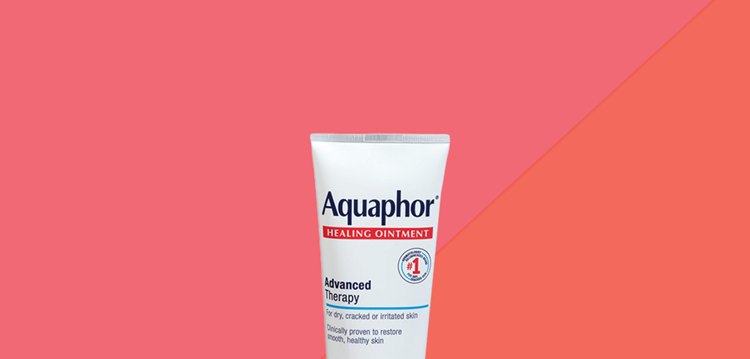
Applying Aquaphor, a petroleum-based ointment, to sunburned skin may have both advantages and potential side effects.
On the positive side, it can create a protective barrier, prevent moisture loss, and aid in soothing dry and irritated skin.
However, it may also have some drawbacks. Due to its occlusive nature, Aquaphor can trap heat and sweat, which may potentially worsen discomfort and impede the body’s natural cooling mechanisms.
Furthermore, in rare cases, some individuals may encounter allergic reactions or clogged pores, which can result in breakouts.
It’s advisable to perform a patch test on a small area first and consult a healthcare professional for severe or persistent sunburn.
Preventing Sunburn

The best way to handle sunburn is to is to prevent it in the first place. Here are some sunburn prevention tips:
- Use sunscreen: Applying a broad-spectrum sunscreen with an SPF of at least 30 is essential before going outside. If you’re swimming or sweating, reapply it every two hours, or more frequently.
- Seek shade: During the sun’s peak intensity, typically between 10 a.m. and 4 p.m, find shade to reduce your sun exposure.
- Wear protective clothing: To shield your skin and eyes from the sun, cover up with clothing, a wide-brimmed hat, and sunglasses.
- Stay hydrated: To prevent dehydration, drink plenty of water, especially when spending time in the sun.
- Avoid tanning beds: Such as tanning beds, artificial sources of UV (ultraviolet) radiation can also cause sunburn and increase the risk of skin cancer.
- Be aware of medications: Some medications can heighten your skin’s sensitivity to sunlight. If you are taking any medications that could make you more prone to sunburn, it’s advisable to consult with your healthcare provider.
Q&A
Can you put aquaphor on your face for sunburn?
Yes, you can use Aquaphor on your face for sunburn. It has the potential to create a protective shield while offering moisturizing benefits, which may alleviate some discomfort. However, for more effective sunburn relief, it is recommended to utilize a specialized sunburn relief product with aloe vera or consult a healthcare professional for severe cases.
Does aquaphor cause sunburn?
Aquaphor does not directly lead to sunburn. However, when applied to the skin without being used in conjunction with an appropriate sunscreen, it does not provide sufficient sun protection. Prolonged sun exposure without sunscreen can elevate the risk of sunburn and harm from the sun’s UV rays.
Is Aquaphor safe for children with sunburn?

Aquaphor is typically considered safe for children with sunburn. It can offer relief by soothing the skin and preventing moisture loss. However, for severe cases, it is advisable to seek guidance from a pediatrician.
Does aquaphor protect from sun?
Aquaphor is not formulated for sun protection. While it can provide a barrier on the skin, it does not provide adequate protection against the sun’s UV rays. For sun protection, it’s crucial to utilize a sunscreen featuring an appropriate SPF (Sun Protection Factor) designed to shield your skin from UV radiation.
What other products or remedies work well in combination with Aquaphor for sunburn relief?
Supplementing Aquaphor with additional sunburn relief measures can enhance its effectiveness. Take aloe vera gel into account for its cooling and anti-inflammatory properties. Over-the-counter pain relievers like ibuprofen can assist in alleviating both pain and inflammation. Additionally, protective clothing, wearing loose, staying hydrated, and avoiding further sun exposure are essential for sunburn recovery.
Can Aquaphor help prevent peeling skin after sunburn?
Aquaphor can help prevent peeling skin after sunburn by maintaining the affected area’s moisture, potentially reducing the extent of peeling. However, it won’t completely prevent peeling.
Are there any alternatives to Aquaphor for sunburn relief?
Yes, there are numerous alternatives to Aquaphor for sunburn relief, including aloe vera gel, cold compresses, over-the-counter creams like hydrocortisone, and natural remedies like coconut oil or oatmeal baths.
Is Aquaphor better than Vaseline for sunburn?
Both Vaseline and Aquaphor can offer relief for sunburned skin, but Aquaphor may be preferred choice because it contains additional ingredients like panthenol and glycerin, which can help heal and soothe the skin. Vaseline is pure petroleum jelly and may lack these additional benefits. However, individual preferences and sensitivities can vary, making it a matter of personal choice.
Does aquaphor help sunburned lips?
Aquaphor is an effective choice for treating sunburned lips. Its rich, emollient formula creates a protective barrier over the affected area, sealing in moisture and warding off further damage. This can help dryness, reduce pain, and peeling associated with sunburn. Aquaphor also contains ingredients like glycerin and panthenol, which can facilitate healing and provide soothing relief. To use, simply apply a thin layer to the sunburned lips and reapply as needed. It’s essential to complement Aquaphor application with sunburn prevention measures, such as using lip balm with SPF, avoiding excessive sun exposure and staying hydrated to reduce the risk of future sunburn on the lips.
Can you wear aquaphor in the sun?
You can wear Aquaphor in the sun, but it fails to deliver sufficient sun protection. It’s recommended to apply sunscreen with SPF to shield your skin from harmful UV rays when exposed to sunlight.
Is aquaphor good for sun rash?
Aquaphor can help soothe and moisturize skin, potentially easing the discomfort associated with a sun-related rash such as sunburn or heat rash. However, it does not treat the underlying cause. It’s best to apply after sun care products and, in cases of severe conditions, consult a healthcare professional.
Does aquaphor help sun blisters?
Aquaphor may provide some relief for sun blisters due to its moisturizing properties. Applying Aquaphor can help keep the affected skin hydrated, potentially alleviating discomfort and safeguarding against the blisters from becoming dry and cracking. This can contribute to the healing process and ease some of the pain associated with sun blisters.
However, it’s essential to remember that Aquaphor should not be considered a substitute for appropriate medical care. In cases of severe sun blisters or concerns about potential infection, it is advisable to consult a healthcare professional who can provide appropriate care, including potential prescription treatments or medical guidance for the best course of action.
Conclusion
Aquaphor can serve as a useful tool for relieving the discomfort associated with sunburn and promoting the natural healing process of the skin. Its moisturizing, soothing, and protective properties can help alleviate the symptoms of sunburn and reducing the likelihood of complications.
However, it’s important to keep in mind that Aquaphor is not a cure for sunburn but rather a supplementary treatment. To prevent sunburn, it’s vital to implement appropriate sun protection measures, including the use of sunscreen, protective clothing, and seeking shade when needed. In cases of severe sunburn or if you observe signs of infection, consult a healthcare professional for appropriate medical care.
In conclusion, although Aquaphor can contribute to sunburn relief, it’s just one part of a comprehensive approach to managing and preventing sunburn. Proper prevention and care are the crucial elements in minimizing the discomfort and potential long-term effects of sunburn.


